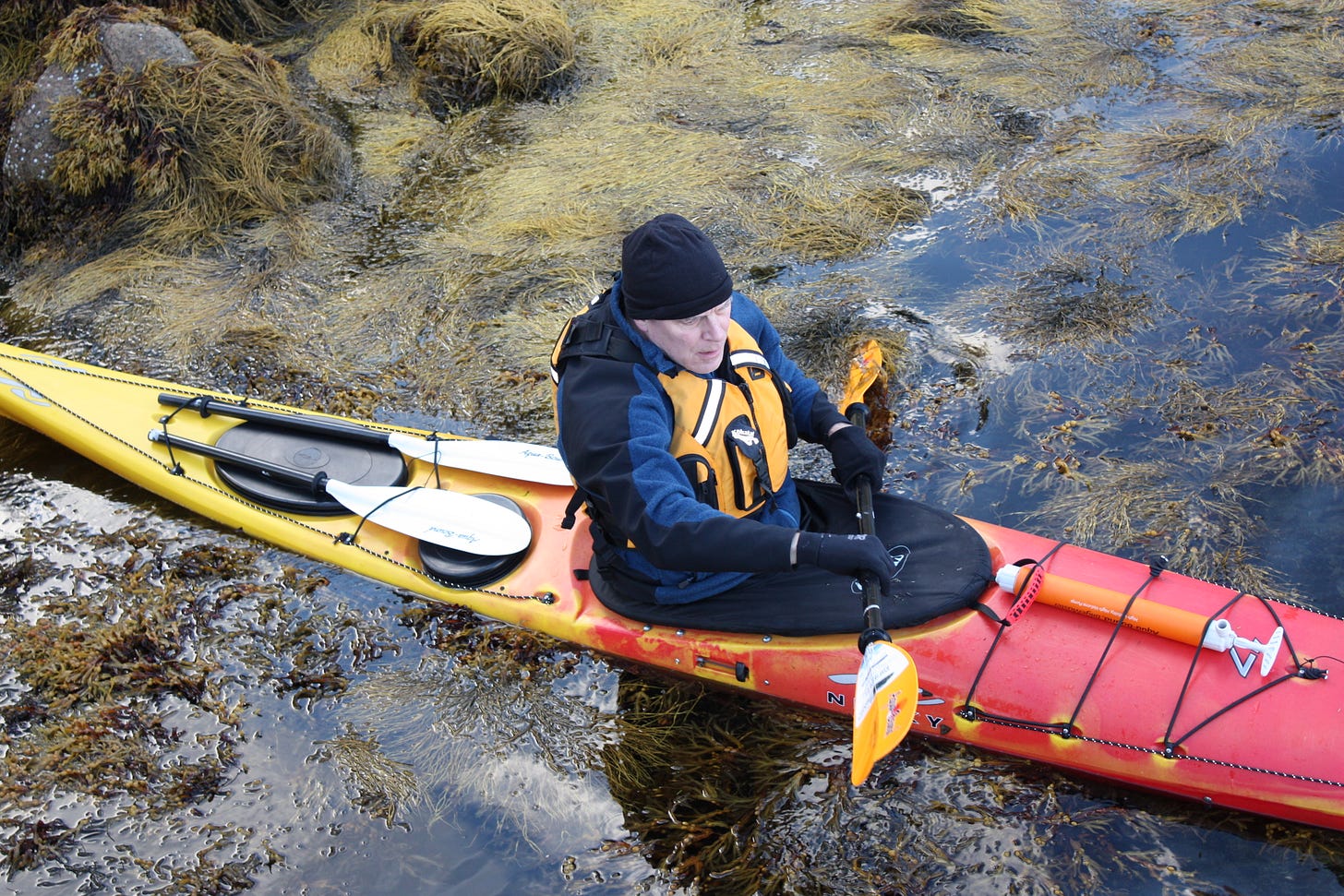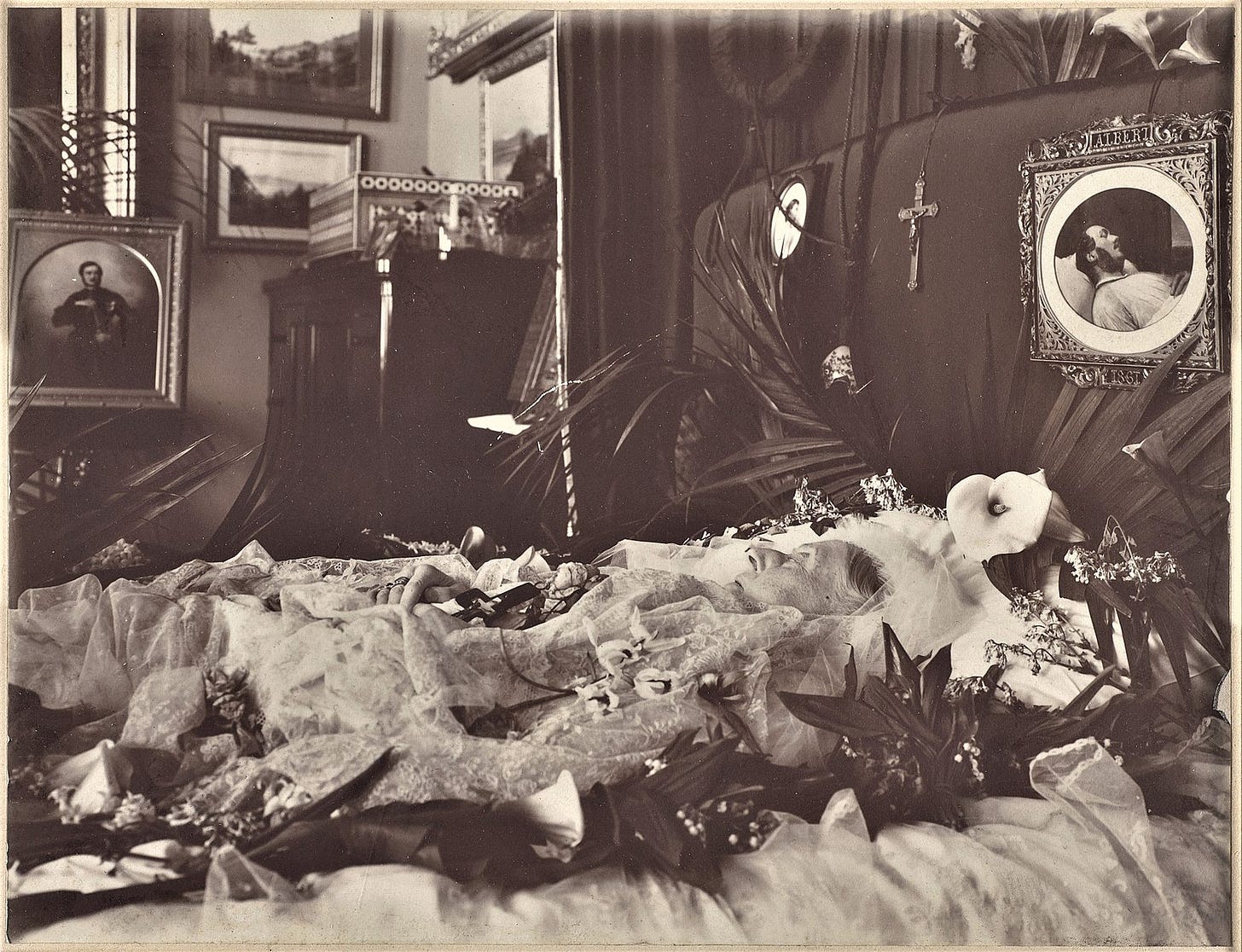The Reverend Debra Jarvis recently interviewed me on the The Final Say podcast. She has “conversations with people facing death,” and she is very good at it. Much of the following concerns my answers to her questions, so you might want to listen before reading this.
Jarvis wanted me to talk about dying. I wasn’t sure what she meant. “What will that day be like?” “What do I want to happen?” “How do I feel about dying?” I told her that I had not thought much about these questions.
Jarvis was dissatisfied with this. She pressed me but I could not provide a good answer. She (gently) mocked my inability to answer her questions.
I’m glad she asked. I’m now in the fourth year of cancer and the third year of a terminal prognosis. Shouldn’t I have profound answers about death? I will try again.
What will the physiological experience of dying be like?
I have nearly died four times. When I was in high school, a car hit me while I was on a bicycle. I drove a cab during college, and two guys held me up at knifepoint. I skied out of an avalanche in a Utah couloir in grad school.

Until recently, we lived on the Nova Scotian coast. I capsized my sea kayak about a kilometre offshore, 4.5° Celsius (40°Fahrenheit), North Atlantic water. The waves were maybe 1 metre, and I was unable to right the boat. I survived each case because I reacted quickly, without much thinking. I was briefly frightened after floating near my kayak, but at least I had the good sense to be wearing my wet suit. In the other cases, I don’t recall any fear.
Will dying will be like these experiences? I have no idea. I tell myself that if the point is to endure danger and hardship, I can do that. Then I recall Wilfred Owen’s account of a soldier dying during a gas attack in the First World War (Dulce et Decorum Est).
As under a green sea, I saw him drowning.In all my dreams before my helpless sightHe plunges at me, guttering, choking, drowning.If in some smothering dreams, you too could paceBehind the wagon that we flung him in,And watch the white eyes writhing in his face,His hanging face, like a devil’s sick of sin,If you could hear, at every jolt, the bloodCome gargling from the froth-corrupted lungs,Obscene as cancer,Bitter as the cudOf vile, incurable sores on innocent tongues…
I am not ready for that kind of death. No one knows how they will die, so how can anyone prepare for it?
What do you want to happen when you die?
Some cultures make a ritual out of the end of life. Some of these rituals are horrifying: the Hindu widow throwing herself on her husband’s cremation pyre or the samurai disembowelling himself.

The Victorians had elaborate scripts for family deathbed scenes and subsequent public mourning. Queen Victoria set the pattern for mourning in the way that the British Royal Weddings set the pattern for modern weddings. But is your death supposed to be a ceremony? Having a script for mourning is fine, but I don’t want a script for how I die: it’s not a performance.
One hears tales of festive assisted suicides. I can almost imagine doing this: I would make bucatini all’amatriciana and mix everyone a Oaxaca Old Fashioned (seriously, try one). We’d raise a toast, have a good time, and then I would quietly pass away.
I have heard that festive assisted suicides can go well; if that is your family’s experience, that’s great. But sometimes it does not. Andrew Solomon wrote of being at his mother’s suicide,
I helped my mother to kill herself and, in doing so, experienced a great intimacy with her. We all believed in what she did... [And yet] My mother’s suicide was the cataclysm of my life, though I admired her for it and believed in it.
If I am healthy enough to cook for my friends and family, I am not at the end of my life. Moreover, I would feel deeply uncomfortable as a guest at such an event. While it’s fitting to commemorate a loved one’s life, I can’t celebrate their life while they are losing it.
So, what do I want to happen at my death? My best answer is that I want my death to cause the least possible trouble for others.
Wait, doesn’t it matter who is with you when you die?
It does. If my wife or one of my children were dying, I would be there. Likewise, I’ll welcome my family or closest friends. But it’s the relationships that matter, not the event of death. If someone close to me could not be present at my death, for whatever reason, I would understand. I know you love me; you do not need to prove it.
You write about death with detachment. What are your emotions about this?
Are we supposed to have Big Feelings about dying? Somehow, I don’t, and I am grateful for that.
There’s nothing wrong with Big Feelings about death, but mine have to do with my family and friends and my life. Sarah Condon is an Episcopal priest who lost both of her parents in a car crash.
In my own life I was not someone who ever thought a lot about needing my family. And now I absolutely cannot live without them. My competitive drive is gone and has been replaced with an overwhelming need to eat casseroles with groups of people who share my DNA. That is the work of the Holy Spirit in me. That is how God uses even the worst things for good.
I’m with Sarah; if someone I know is grieving, I want to make a casserole. (And no lie, I make incontestably the best lasagna in North America: fresh homemade noodles with ragù, served with a Brunello di Montalcino.) I can even make it vegan, but you must promise not to tell Chef Domenico of the Castello Banfi, who taught me.
These are inadequate answers, but they’re all I’ve got. I have thought and written about how cancer and the imminence of death have changed how I live. As to dying, I hope to be cheerful and present for anyone who can be with me. And whatever happens, I’ll take what comes. Providence is finding life in the shadow of death.
Reading recommendation: David Brooks, How to Know a Person. I am listening to the audiobook which Brooks reads. He writes about being present for another person and communicating respect and interest. If you do this, you will learn more from getting to know them, enriching your life. Brooks is inspired by, among others, Iris Murdoch. I’m impressed by this writing because it is difficult to say anything useful about matters that are familiar, mundane, and yet fundamental. Brooks is clear, straightforward, and personal.









An interesting meditation on dying, Bill, very thought-provoking. I'd be interested in a follow-up post if/how your thinking changes post-publication and beyond.
And thank you for the (re)reminder about Iris Murdoch. You've mentioned her before and it's a great reminder I should go back to her trove of thoughts about being human.
Maybe some of the challenge in your conversation on the podcast is you have implicitly different understandings of what constitutes the dying role. Dying is more than a physiologic process; it’s a socio-culturally constructed role that tells people how they should act, and also tells others how this person should be treated. There’s a difference in medicine, for example, between the sick role and the dying role. In our day, the dying role has been desiccated of meaning, so we’re left with the physiologic understanding as well as whatever idiosyncratic meaning someone can wring out of it - which is really challenging. More on that here: https://familymeetingnotes.substack.com/p/in-the-vale-of-tears-dying-and-its